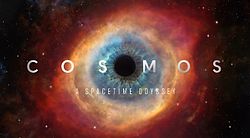TRANSLATE THIS ARTICLE
Integral World: Exploring Theories of Everything
An independent forum for a critical discussion of the integral philosophy of Ken Wilber
SEE MORE ESSAYS WRITTEN BY FRANK VISSER
Why Integral Theory
is not a Theory
of Everything
Frank Visser
A true Theory of Everything should cover the domains of matter, life, mind and culture in equal measure.
One of Ken Wilber's books is titled A Theory of Everything (2000). This term "theory of everything", often shortened to TOE, is usually used for theories of physics, that attempt to unify the four major forces of nature (gravitational, electromagnetic, strong nuclear, and weak nuclear). This goal has not yet been reached. The two major theories in physics, General Relativity and Quantum Relativity, have not been unified, though some think String Theory might accomplish this.
Ken Wilber's brand of TOE has an even more ambitious programme: not only to cover the physical realm (usually restricted to the human body or brain, and to behavior), but also those of consciousness and culture. In fact, these last two domains of mind and culture are where Wilber excells. In his opinion, as mind goes through various stages of development it creates different and often conflicting worldviews and value systems, resulting in the perplexing chaos of our world. The domains of matter and life feature less prominent in his many works. As it happens, his dealings with evolutionary theory have been less than fortunate, and his sparse statements on physics or astronomy haven't fared any better. In both areas, Wilber attempts to "explain" novelty—be it the origin of the heavy elements or of complex biological organs such as eyes and wings—with the help of the Whiteheadian notion of a "creative advance into novelty".
A true Theory of Everything should cover the domains of matter, life, mind and culture in equal measure. As I demonstrated in an earlier essay, the discipline of Big History serves a complementary function here. Where Integral Theory is strong in the fields of mind and culture, Big History's focus usually is on the realms of matter (cosmology, astronomy, chemistry) and life (chemistry, biology). Integral Theory would therefore do well to connect to this kindred academic discipline. To my knowledge, Joseph Voros is the only one working in this field (see his "Two Conference Presentations on Big History and Integral Theory"). The impressive television documentary "Cosmos: A Space-Time Odyssey" covers a lot of this ground as well (and it gets an unusually high rating of 9,6 at the Internet Movie Database).[1]
The integral community lacks the expertise and the interest in this fundamental domain of the hard sciences. It usually takes Wilber's interpretations of science for granted, or even as revelation. For example, when Wilber describes the evolutionary process as driven by Eros of Spirit, and as directed towards greater complexity and consciousness, this is in harmony with the professional efforts of integral practicioners, and even gives them the flattering feeling of being grounded in the hard sciences. Nothing could be further from the truth.
This discourse even gets religious overtones when it is stated, that behind the Big Bang, and through the genesis of galaxies, stars and planets, the origin of life on Earth and the subsequent diversification of life forms, and even within our own individual minds, one single cosmic Something is at work—often implicitly equated with Spirit or God. Ironically, though this approach is these days called "evolutionary" in integral circles (in my opinion not as catchy as "integral" and far more problematic), Wilber has never really engaged evolutionary theory in any of his writings. Rather, his brand of evolutionary understanding is best described as pop-evolution.
What is more, his suggestion that on top of the four known forces of nature a fifth force, a "drive towards self-organization" should be postulated to account for the phenomena of organized complexity found in the realms of life, mind and culture hasn't been taken seriously by science so far—for obvious reasons: science feels confident it can explain these phenomena without resorting to such a far-out hypothesis. In my opinion, the concept of a "drive towards self-organization" is a contradiction in terms. Wikipedia has a great overview article on self-organization, showing the many areas in which this phenomenon has been observed and studied. None of these conceptualize it as a "drive" towards complexity. "This process [of self-organization] is spontaneous: it is not directed or controlled by any agent or subsystem inside or outside of the system."[2]
 Hurricane Isabel (2003) as seen from orbit
Hurricane Isabel (2003) as seen from orbit
during Expedition 7 of the International Space Station
For example, Hurricanes, excellent examples of self-organization, arise when the right conditions of ocean temperature and air pressure are available, but for sure not because there is some sort of "drive towards hurricanes". On the contrary, self-organization means they originate exactly without such a drive! Wikipedia explains: "Tropical cyclones typically form over large bodies of relatively warm water. They derive their energy from the evaporation of water from the ocean surface, which ultimately recondenses into clouds and rain when moist air rises and cools to saturation. This energy source differs from that of mid-latitude cyclonic storms, such as nor'easters and European windstorms, which are fueled primarily by horizontal temperature contrasts. The strong rotating winds of a tropical cyclone are a result of the (partial) conservation of angular momentum imparted by the Earth's rotation as air flows inwards toward the axis of rotation. As a result, they rarely form within 5° of the equator."
The structure of Wilber's argument regarding the limited value of neo-Darwinism is similar to those found in the world of Intelligent Design—though his idea of Spirit or God may seem more sophisticated and mystical than its fundamentalistic counterpart Jehova. But even so, and like the ID-proponents, Wilber resorts to lame attempts at discrediting science and its accomplishments, thereby implying that his own favorite concept of "Eros in the Kosmos" has any explanatory value in this regard. Time and again, science has refuted the "arguments" raised by Intelligent Design authors, and will do the same with Wilber's, if he would only offer his ideas to the forum of expert scientists.[3]
Where Ken Wilber himself hasn't written much on the details of evolution, other recent integral authors (such as Carter Phipps[4] and Steve McIntosh[5]) have produced works of what I would call "evolutionary fiction", in which they explore the cultural and spiritual implication of the notion of evolution, but barely touch upon it's original biological context. Indeed, none of these authors engage evolutionary theory in any substantial way—nor Wilber's misconceptions about it, for that matter—other than suggesting that though standard evolutionary science has booked progress in understanding the intricate working of evolution, many problems remain to be solved (no surprise here—after all, that's what science is about!) or may not be solvable at at all (a matter of faith, and certainly no evidence for their own favorite conceptions of Spirit).
The reason the integral community hasn't picked up on these matters is that it consists mostly of meditators, therapists, management consultants and coaches.
The reason the integral community hasn't picked up on these matters is that it consists mostly of meditators, therapists, management consultants and coaches, who are largely ignorant of the domain of science, or not even interested in the field. Perhaps they feel the AQAL integral model works just fine in their respective professional disciplines. Who cares where the heavy elements come from, they might think, or what drives biological evolution, if anything at all? But if Integral Theory claims to cover all available knowledge, it can't afford to neglect this glaring omission.
The first step would be to honestly acknowledge both the strong and the weak points of Integral Theory. Differentiating Integral Theory along the lines of I, We and IT is the best way to get a realistic assessment of the value of Wilbers theoretical proposals.
- In the I-domain of consciousness states and developmental stages Wilber is traditionally at his best, though his repeated support for controversial gurus (Trungpa, Adi Da, Cohen, Gafni) has raised suspicion as to his naive level of discrimination by some.
- The We-domain of culture, community, society and politics has occasionally been approached by Wilber through the lens of Spiral Dynamics, but has not yet resulted in detailed policy recommendation for American politics, not to mention the wider world of world politics at large.
- Finally, the It-domain of matter and life still remains to be covered by integral authors. Until then, Integral Theory cannot hope to earn the lofty title of "Theory of Everything" in any believable sense.
NOTES
[1] As an interesting historical aside, back in 2000 the newly founded Integral Institute held meetings of several academic groups. In the Integral Education meeting which I attended, plans were discussed to link up with Joe Firmage's project called Project Voyager. Firmage, one of the participants, was a young internet millionaire who had provided funding for the startup of Integral Institute. His idea was to create, in cooperation with Carl Sagan's widow Ann Druyan, an online and updated version of "Cosmos", Sagan's famous 1980 television documentary, under the name of www.onecosmos.net. This project was short-lived, due to the digi-meltdown of 2001. (Thanks to Brian van der Horst, who attended this meeting as well, for reminding me of this).
[2] Wikipedia: http://en.wikipedia.org/wiki/Self-organization.
[3] See two excellent volumes: M. Young & T. Edis (ed.), Why Intelligent Design Fails (2004) and M. Young & P. Strode, Why Evolution Works (and Creationism Fails) (2009) published by Rutgers University Press. Here, both Intelligent Design and evolutionary theory are engaged with in an exemplary way to reach the conclusion that Intelligent Design creationism is scientifically bankrupt.
When I approached Boulder-based physicist Matt Young, the co-editor/author of these volumes, to check with him about the scientific validity of Wilber's take on evolution, he answered:
I was vaguely thinking of writing something up and linking to your article ["For Crying Out Loud: Ken Wilber Repeats Vaporous
Arguments about Evolution"], but I guess I cannot get very excited that Wilber does not understand evolution. Of course he does not—anyone who believes in an élan vital or the rough equivalent will misunderstand evolution as surely as will a biblical literalist. (What is Spirit, and how can I perform an experiment to detect it?) (email communication, March 10, 2014)
[4] Carter Phipps, Evolutionaries: Unlocking the Spiritual and Cultural Potential of Science's Greatest Idea, Harper Collins, Harper Perennial, 2012. Review at Integral World.
[5] Steve McIntosh, Evolution's Purpose: An Integral Interpretation of the Scientific Story of Our Origins, SelectBooks, 2012. Review at Integral World.
|

 Frank Visser, graduated as a psychologist of culture and religion, founded IntegralWorld in 1997. He worked as production manager for various publishing houses and as service manager for various internet companies and lives in Amsterdam. Books: Ken Wilber: Thought as Passion (SUNY, 2003), and The Corona Conspiracy: Combatting Disinformation about the Coronavirus (Kindle, 2020).
Frank Visser, graduated as a psychologist of culture and religion, founded IntegralWorld in 1997. He worked as production manager for various publishing houses and as service manager for various internet companies and lives in Amsterdam. Books: Ken Wilber: Thought as Passion (SUNY, 2003), and The Corona Conspiracy: Combatting Disinformation about the Coronavirus (Kindle, 2020). 
